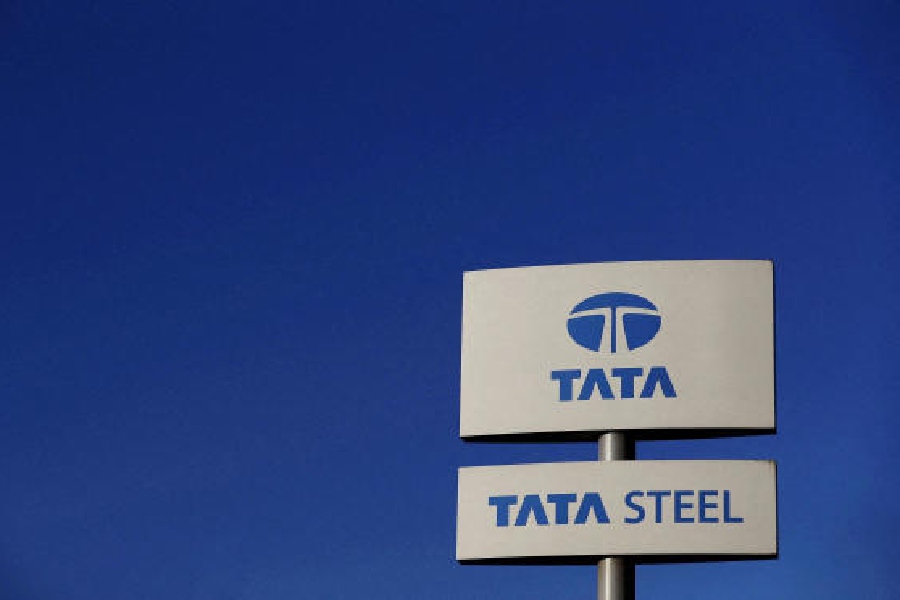Tata Steel posted a 75.1 per cent jump in consolidated net profit in the first quarter on the back of the Netherlands operation coming back to normalcy after a maintenance shutdown.
The company recorded a ₹919-crore profit after tax in the quarter ended June 30 compared with ₹525 crore in the same period of the last fiscal. Total revenue from operations, however, slid 7.9 per cent to ₹54,771 crore in Q1FY25 from ₹59,490 crore in Q1FY24 due to lower steel prices.
Deliveries in the three months ended June 30 stood at 7.39 million tonnes, up 2.7 per cent from 7.2 MT in Q1FY24. In India, deliveries stood at 4.9 MT, which was the best ever in a first quarter, aided by a 4 per cent year-on-year growth in domestic deliveries.
On a standalone basis, total revenue from operations went down 7.1 per cent to ₹32,959.66 crore from ₹35,486.8 crore, while net profit came off by 36.1 per cent to ₹3,329 crore from ₹5,214 crore in Q1FY24.
The company spent ₹3,777 crore on capital expenditure in the quarter. The phased commissioning of the 5 MT Kalinganagar expansion is ongoing and the blast furnace is going to start up in September, Tata Steel informed.
“During the quarter, subdued steel demand across most regions weighed on global steel prices,” T.V. Narendran, CEO and managing director of Tata Steel Ltd, said in a statement.
Tata Steel Netherlands swung back to ₹453 crore EBIDTA in the first quarter. However, EBIDTA loss of Tata Steel UK widened to ₹955 crore in the Q1FY25 compared with ₹398 crore in the same period last year.
Consolidated net debt of the company at the end of June 30 was ₹82,162 crore. Commenting on the proposed restructuring of the UK business, Koushik Chatterjee, CFO and executive director of TSL, said, “We are proceeding according to the previously announced timelines for the closure of the heavy end, a step critical to address the deep cash burn associated with the upstream end of life assets.”
TSUK, which plans to stop BF operations by end September, has launched a voluntary redundancy scheme on July 10 and it will close on Aug 10.
Chatterjee said the company was working closely with the newly elected UK
government to access grant funding for the proposed electric arc furnace.
Mineral tax
In a note to the Q1 results, TSL disclosed it has a contingent liability of ₹17,347 crore as on June 30 on account of mineral tax. The tax demand refers to the company’s mines in Odisha, which imposed a levy on mineral bearing land.
TSL had disputed the tax demand levied by Odisha and won a favourable judgment from Odisha High Court in 2005. However, on July 25, the Supreme Court upheld a state’s power to levy tax on mineral rights.
“Pending clarity on the period of applicability of the levy, the company — in line with previous years — continues to include the aforementioned demand along with the impact of the estimated amount till June 30, 2024, aggregating to ₹17,347 crore, as contingent liability in its standalone and consolidated financial statements.”










